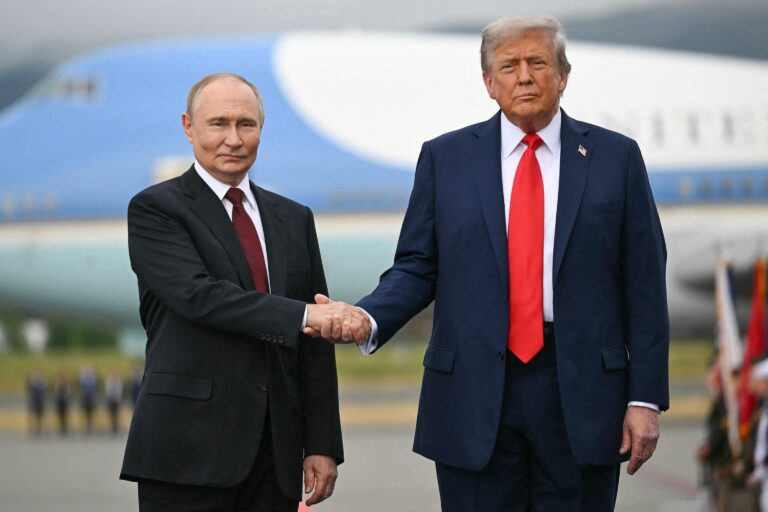As US President Donald Trump and Russian President Vladimir Putin prepare to meet, global attention turns to the potential implications of their discussions. For Germany, a pivotal player in European security and transatlantic relations, the outcomes of this high-stakes summit carry significant weight. This article explores what Germany can anticipate from the Trump-Putin meeting, analyzing its possible impact on diplomacy, security cooperation, and economic ties within the broader context of international relations.
Potential Shifts in European Security Dynamics Following the Trump Putin Summit
Europe stands at a crossroads as the unprecedented meeting between Donald Trump and Vladimir Putin could recalibrate the continent’s security framework. Germany, in particular, might face new challenges as NATO cohesion is tested by shifting allegiances and an altered US approach to Russia. Analysts warn that a potential détente between Washington and Moscow could embolden Moscow’s strategic ambitions in Eastern Europe, thereby complicating Berlin’s balancing act between maintaining strong transatlantic relations and addressing Russia’s assertive posture.
Key areas of concern include:
- Reduction in NATO’s deterrence capabilities, if US commitments to collective defense are weakened.
- Renewed debates over European defense autonomy, fueling discussions on increased German military spending and strategic independence.
- Possible impact on ongoing conflicts in Ukraine and the Baltic states, with Germany potentially playing a mediator role amid shifting alliances.
| Potential Outcomes | Implications for Germany |
|---|---|
| Eased US-Russia tensions | Risk of sidelining EU interests in favor of bilateral US-Russian deals |
| Increased European defense initiatives | Boost to German defense industry and policy leadership |
| Heightened regional instability | Pressure on Germany to enhance diplomatic engagement and crisis management |
Implications for German Foreign Policy and Transatlantic Relations
Germany finds itself at a critical juncture as the Trump-Putin meeting signals potential shifts in global power dynamics. Berlin’s primary concern centers on how the transatlantic alliance, especially NATO, may be affected by any recalibration of U.S.-Russia relations. The German government must prepare for possible recalculations in defense commitments and diplomatic priorities, ensuring that European security frameworks remain robust regardless of Washington’s evolving stance. Key areas of uncertainty include:
- U.S. guarantees to NATO and implications for European defense spending
- Potential economic realignments affecting German-Russian trade, especially energy supplies
- Coordination challenges between Berlin and Washington on sanctions and geopolitical strategies
Moreover, the meeting’s outcomes could reshape Germany’s diplomatic balancing act between maintaining close ties with the U.S. and engaging with Russia on critical issues such as Syria, Ukraine, and cyber security. To illustrate how closely intertwined these interests are, consider this overview of areas where Germany must navigate competing pressures:
| Policy Area | Potential Impact | German Response |
|---|---|---|
| Security Cooperation | Uncertain U.S. commitment to NATO | Increased EU defense collaboration |
| Energy Policy | Continued reliance on Russian pipelines | Investment in diversified renewables |
| Sanctions Policy | Risk of U.S.-Russia détente easing sanctions | Maintaining EU unity on enforcement |
Strategic Recommendations for Berlin to Navigate Emerging Geopolitical Challenges
In light of the evolving dynamics between Washington and Moscow, Berlin must prioritize diversifying its diplomatic engagements beyond traditional alliances. This includes fostering deeper ties with emerging powers and regional partners to mitigate risks associated with potential shifts in U.S.-Russia relations. Proactive investment in multilayered security frameworks – from cyber defense initiatives to energy independence projects – will be essential to preserve Germany’s strategic autonomy. Furthermore, Germany should advocate for transparent dialogue mechanisms that preempt conflicts and promote cooperative conflict resolution across Europe.
Key actions to consider include:
- Enhancing EU cohesion: Strengthening intra-European consensus on foreign policy directions to speak with a unified voice.
- Bolstering NATO capabilities: Ensuring alliance readiness while balancing deterrence with diplomatic openness.
- Investing in resilience: Protecting critical infrastructure and diversifying energy imports to reduce leverage.
- Engaging civil society: Promoting public awareness and dialogue on geopolitical impacts to sustain democratic resilience.
| Strategic Focus | Immediate Action | Expected Outcome |
|---|---|---|
| EU Unity | Forge joint policy frameworks | Stronger negotiating position |
| Energy Security | Expand renewable sources | Reduced external dependence |
| Cyber Defense | Invest in advanced technologies | Enhanced national security |
| Public Diplomacy | Increase educational campaigns | Greater social cohesion |
The Way Forward
As the Trump-Putin summit unfolds, Germany watches closely, mindful of the potential implications for transatlantic relations and European security. The meeting’s outcomes could redefine dynamics not only between the United States and Russia but also influence Germany’s diplomatic and strategic calculations. In an increasingly complex international landscape, Berlin’s response will be critical in shaping the future of cooperation and conflict across the continent.




